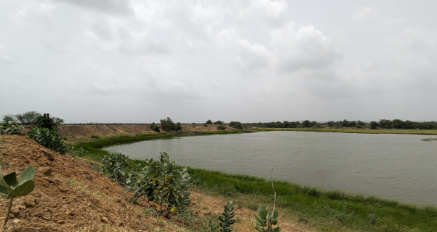
Ponds have been part of India’s everyday life for generations. Every village had multiple, usually managed by communities as sources of irrigation, drinking water, bathing, watering cattle, and performing rituals. Today, many of these ponds are disappearing. They are either converted into dry pits filled with garbage or have been buried under new buildings and roads. Even where water remains, it is often stagnant and polluted. The disappearance of ponds is both environmental and social and cultural loss.
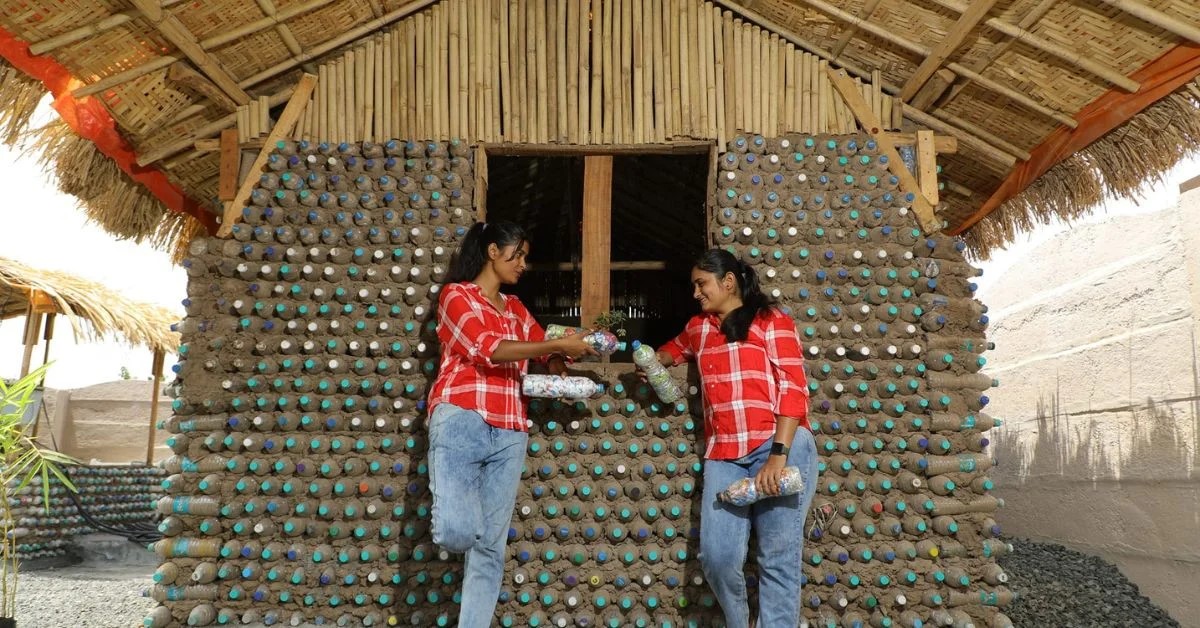
Have you ever wondered if something as ordinary as plastic could be the key to sustainable living? In the city of Aurangabad, two young women have transformed this everyday item into a house. But let's take a step back - did you know that globally, over 8 million tons of plastic find their way into our oceans every year, polluting our marine life and ecosystems? In India alone, we produce a whopping 3.5 million tonnes of plastic each year. And with the COVID-19 pandemic, things got even worse with an increased usage of plastic in our everyday purchases.
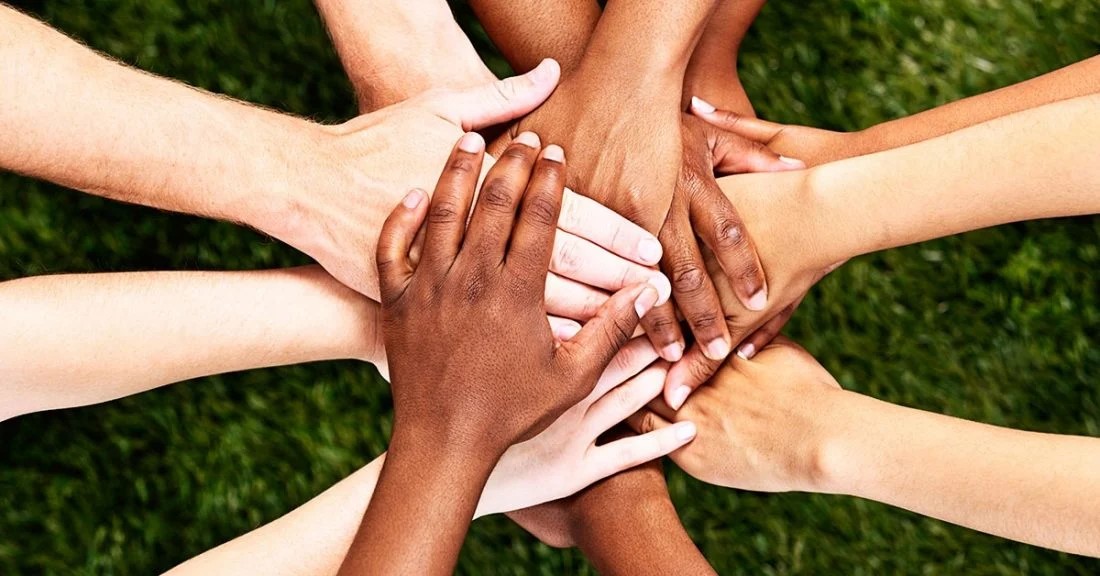
The Climate Reality Project's Campus Corps is a groundbreaking initiative that harnesses the passion and energy of young people to drive climate action on college campuses around the world. Founded by former Vice President & former Congressman Al Gore in 2006, The Climate Reality Project is a non-profit organization dedicated to catalyzing global solutions to the climate crisis. With the Campus Corps program, the organization aims to empower students to become leaders in the fight against climate change, amplifying their voices and advocating for sustainable solutions on campus and beyond.
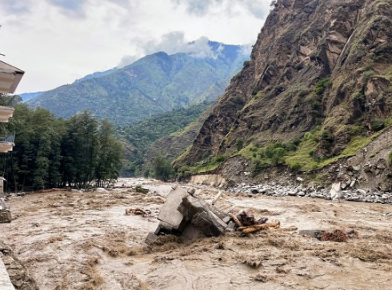
A cloudburst is an unusually intense and very short-duration rainfall event over a small area. In the Indian context, meteorologists often define it as more than 100 mm of rain in one hour over an area of roughly 30 km² or less. The mechanism involves warm, moisture-laden air that is forced upward (often by steep terrain), cools rapidly, forms deep cumulonimbus clouds, and then “bursts” when it can no longer hold the condensed water — releasing an enormous downpour in a brief span. In mountainous regions this sudden deluge can trigger instant runoff, flash floods and landslides — because the steep slopes and narrow valleys accelerate water and debris flow.

Michael Specter, a staunch advocate for genetically modified (GMO) foods, used to say: “All the food we eat—every grain of rice and kernel of corn—has been genetically modified. None of it was here before mankind learned to cultivate crops. The question is not whether our food has been modified, but how.” It is this ‘how’ that has divided the world into pro-GMO and anti-GMO

Traditional gift-giving is what we know as wrapping parcels, bulging shopping bags, and loads of unwanted packaging. But have you wondered what happens to those gifts that end up unused and thrown away, they contribute to environmental pollution. So, does this mean we should stop giving gifts to our loved ones? That would not be an appropriate solution.
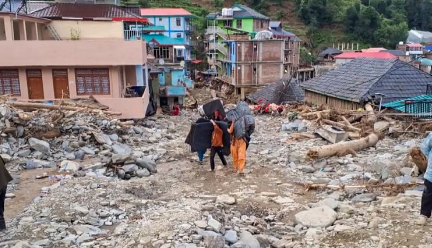
In the Himalayas, landslides have stopped being rare accidents. They are becoming routine, almost predictable. Himachal Pradesh saw more than 400 deaths in July–August 2023 alone, triggered by torrential rains and worsened by reckless slope-cutting for roads and buildings. Uttarakhand has been on the same path. By 2025, nearly 65 per cent of monsoon days featured extreme weather events almost double the proportion in 2022, according to data from the state’s emergency operation centre. Flash floods and landslides in Uttarkashi this season killed at least 48 people, while more than 100 remain missing.
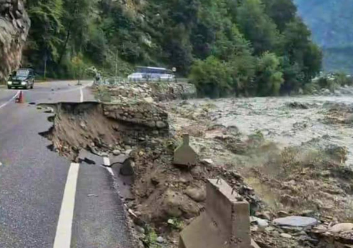
Over the past week, Himachal Pradesh has been battered by a series of intense cloudbursts and flash floods, particularly in Mandi, Kangra, Kullu, Chamba, Shimla, and Solan districts. In just 24 hours from June 30 to July 1 in the Mandi–Seraj region, rainfall soared to 140.7 mm, exceeding the usual 6.9 mm—a staggering 1,939 % above average, according to local meteorological records.
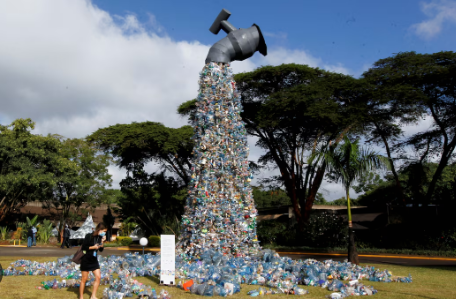
Something historic happened at the conclusion of the United Nations Environment Assembly (UNEA) in March 2022. Representatives from 175 nations said ‘Yes’ to creating a legally binding UN instrument to end plastics pollution. This was for the first time that a unanimous decision was taken to address plastics pollution at global level. As part of this UN resolution, it was agreed to establish an Intergovernmental Negotiating Committee (INC) to develop a UN Plastics Treaty—a legally binding instrument for addressing “the full life cycle of plastics.”

Climate change is transforming India's fruit production landscape, with temperatures rising, precipitation patterns shifting, and extreme weather events becoming more frequent. From Uttarakhand's apple orchards to Maharashtra's mango groves, changing climatic conditions are altering the quantity and quality of India's prized fruits, threatening livelihoods and food security.